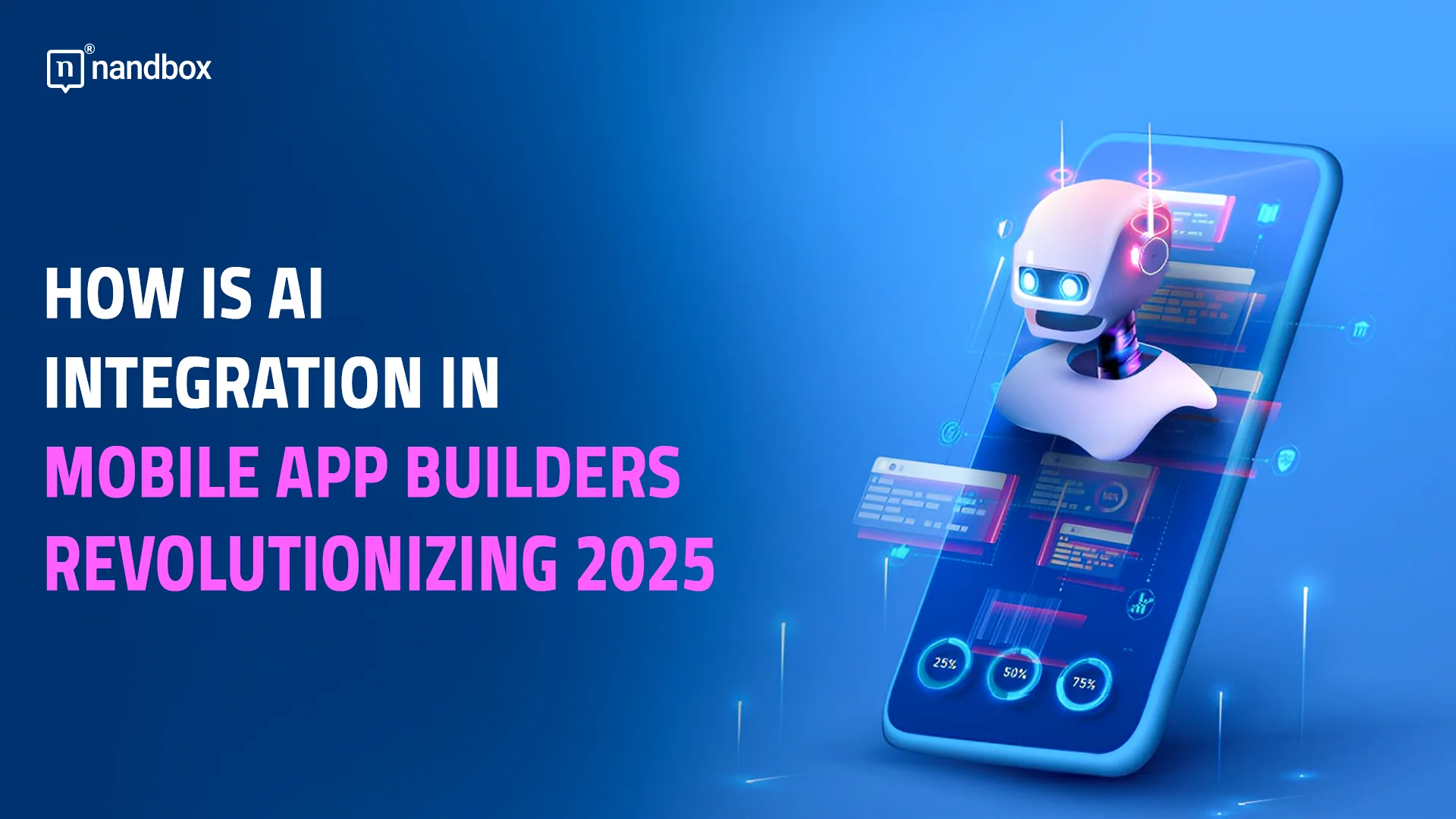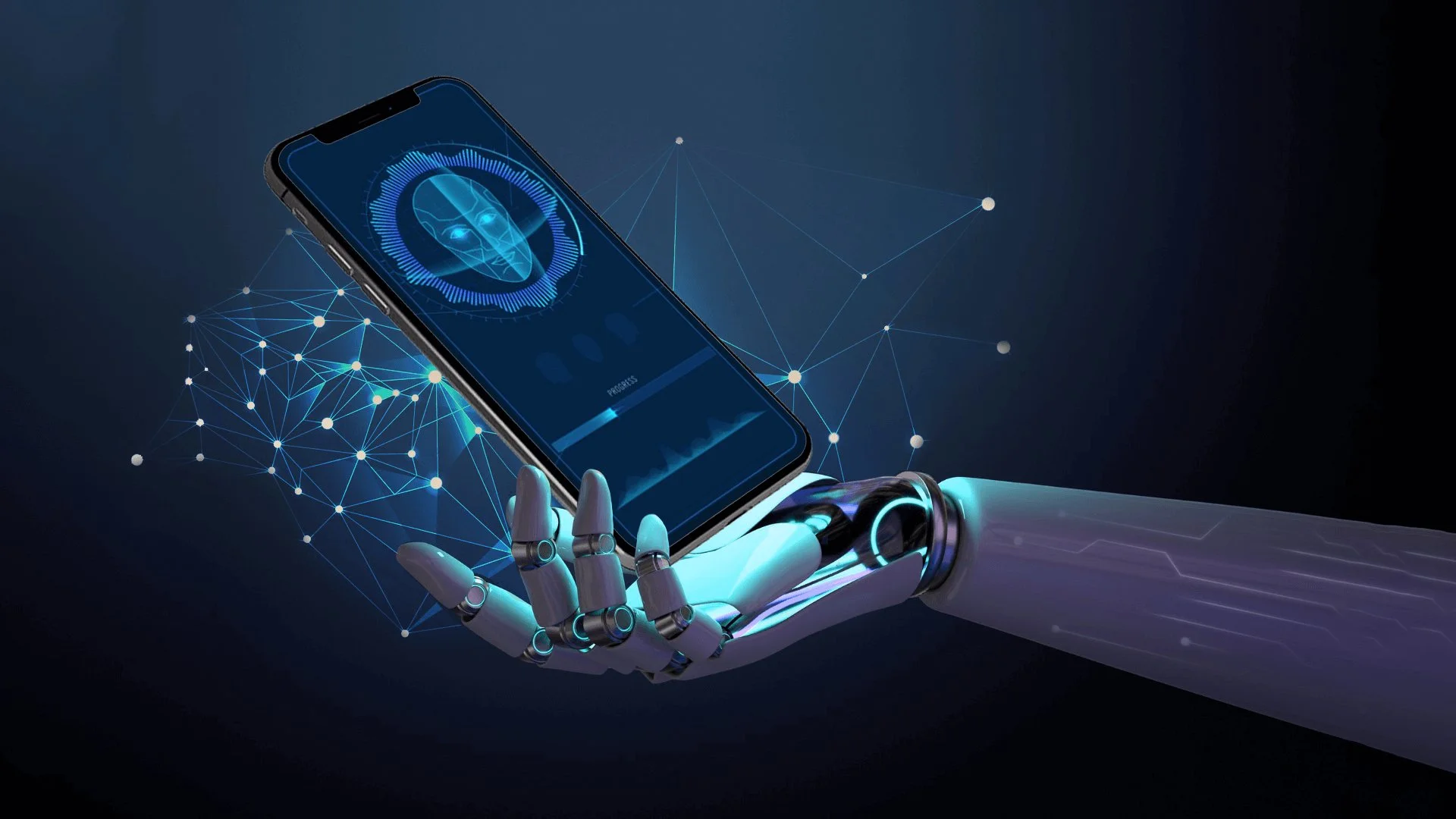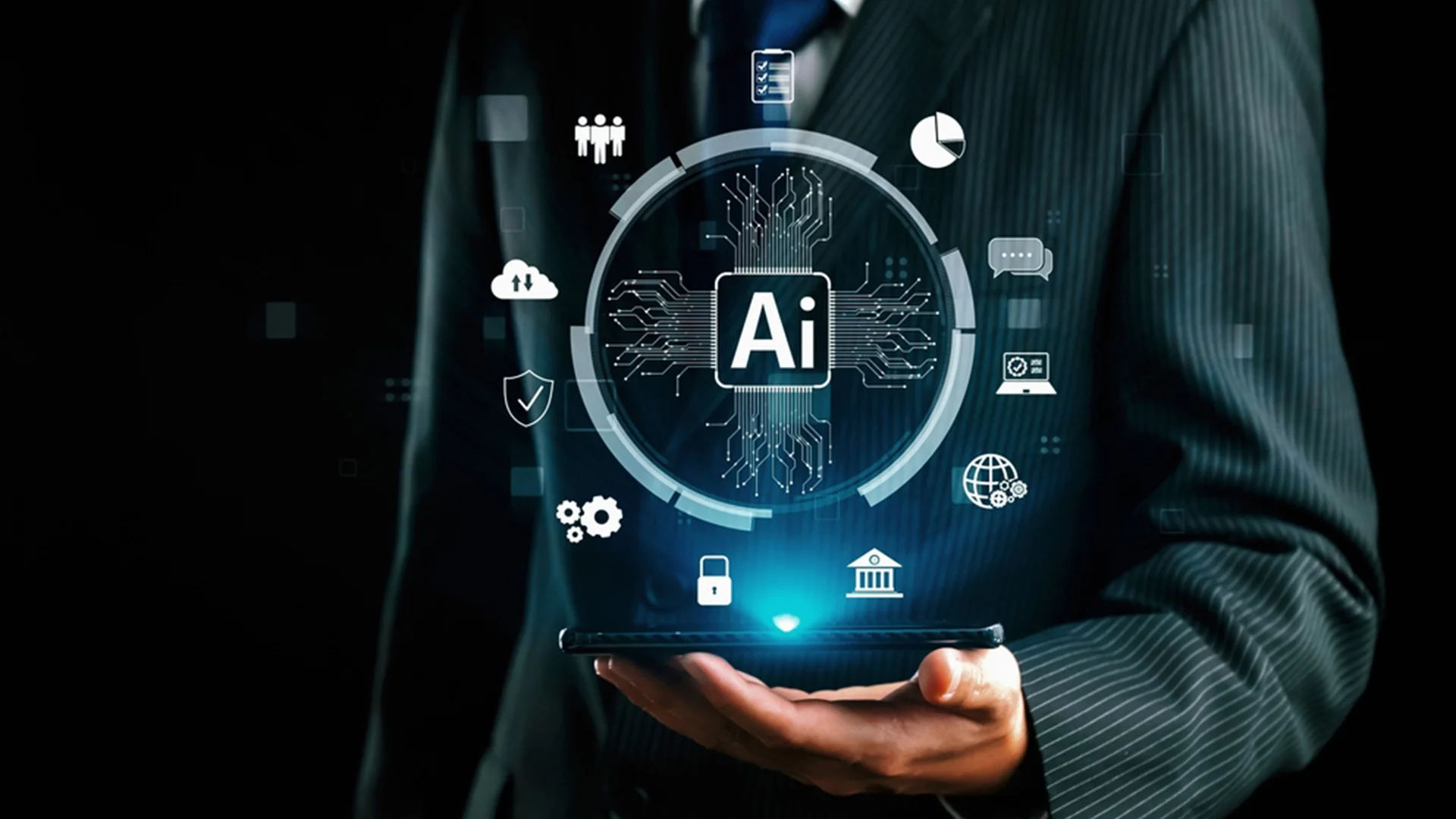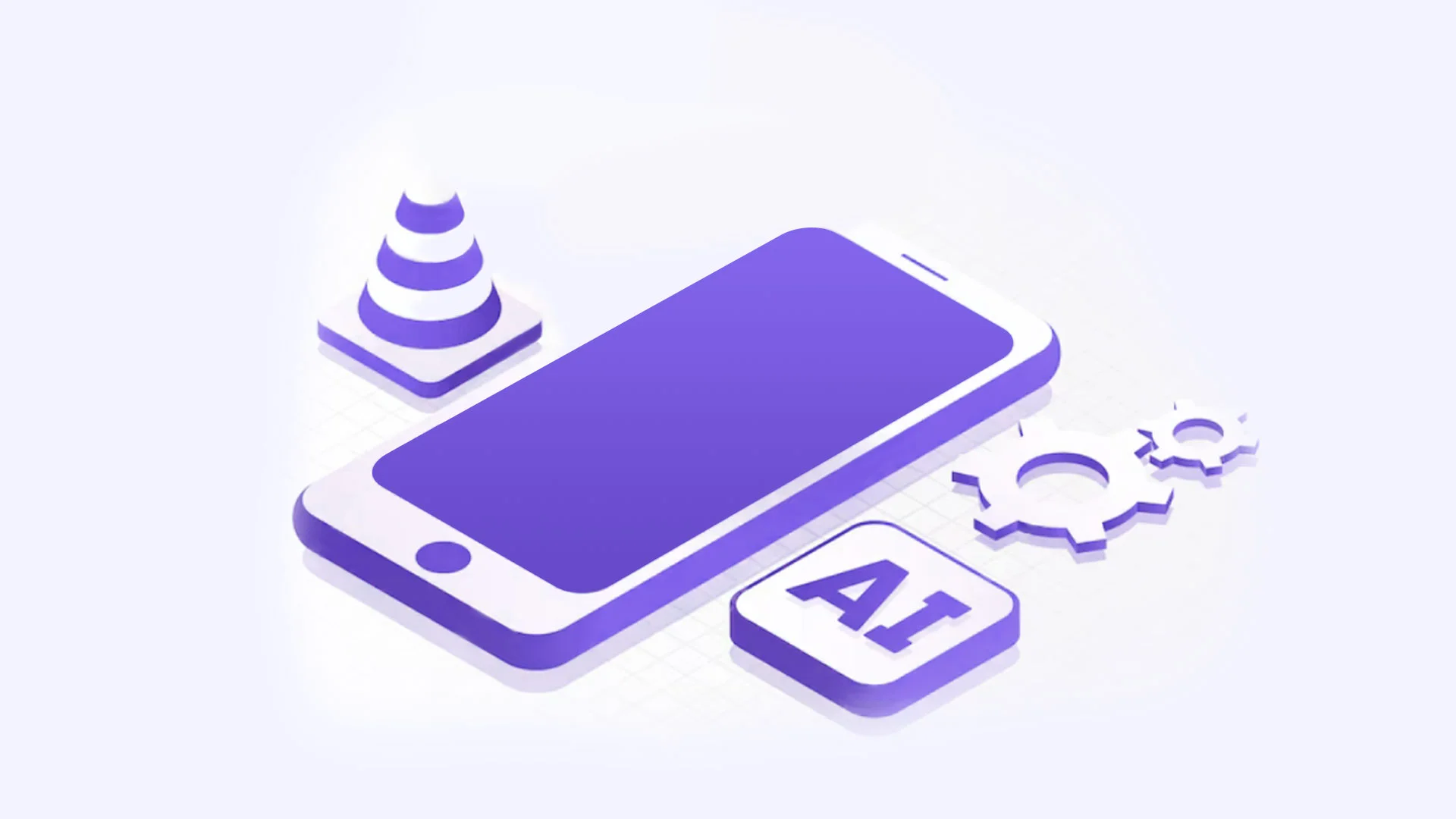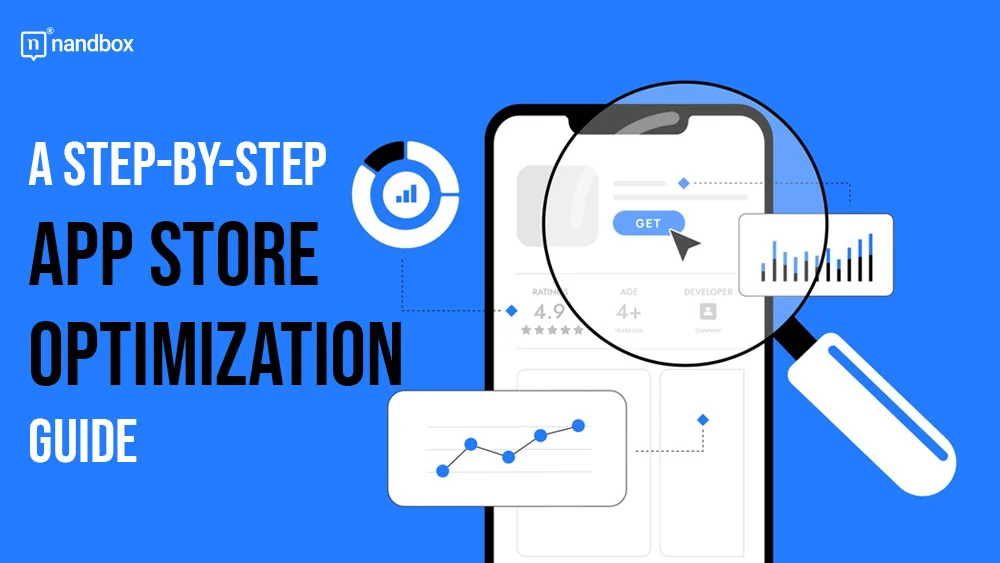I would like you to imagine with me a process where you build an app without having to lift a finger or think of even writing any codes. A process where you wish and an app builder makes it happen. Something as simple and easy as snapping your fingers. No, I am not talking about a part in Harry Potter or any other magical realm where you swish and flick a wand and that’s that for the process. I am talking about creating an app without any technical barriers or limitations that you may face. In this guide we will delve deeper into the fact that mobile app builders are enhancing and shifting life as we know it. Additionally, we will discuss new trends like AI integration in mobile app builders and how things are now getting reshaped from the perspective of AI developers.
The Technological Era of 2025 and What it Has to Offer
Welcome, dear reader, to 2025. A year where AI integration in mobile app builders isn’t just another dream that we have for the near future. This is real life and it couldn’t get more real than it is with all the new technological advancements that are surrounding us nowadays. AI has moved from being a simple word that is trendy on the internet to a whole new thing that is taking the whole world to a whole new spin. It has become a practical game-changer in the tech industry. AI is now transforming how we design, develop, and optimize apps. It is also helping us in having an app creation process that is faster, smarter, and, may I say, undeniably exciting and fun? This article guide dives deep into the evolution of mobile app builders with AI. It covers the features that make AI and these app builders revolutionary and how this tool (AI) is reshaping how our future will look like.
Whether you’re a developer who knows their way around the ropes, someone new with all the app development knowledge, or simply a person who’s curious and wonders what this is all about, this guide will help you understand everything about AI integration in mobile app builders. You’re about to uncover why AI is the best secret ingredient for any app that is looking to get a lovely “wow” whenever a user is on it. Ready to embark on this journey? Let’s go.
Understanding AI in Mobile App Development
What’s all the hype about AI integration in mobile app builders or development? Why is it creating such a market buzz that no one addresses enough? To understand it, think of AI as the secret ingredient. One that gives apps their brains and charm. Henry Cavill-style, please, because we all know that he has got more than just these two. It’s the tech that allows apps to think, learn, and improve over time. Remember those days when apps were static and unresponsive? No? Well, no need to actually. Because those days are long gone, and I hope for once that they never return. Thanks to AI, apps are now becoming more dynamic than ever. They are adjusting to user behavior, preferences, and needs in an almost instinctive way. Let me give you an example for better understanding of what I am saying. Take Spotify, for example. Ever noticed how this app seems to read your mind whenever you’re listening to the daily playlist it curated for you? I know how sometimes one song can make me feel like “damn, this app knows me.”
I am not going to lie and say that this is an easy thing to achieve; however, if you tend to succeed in the life and working line of technological advancements that include the newest versions of AI, such a goal would be something that you should take care of and understand in order to be successful enough. You think it was easy for Uber to create an app that brings up your most visited place on map or reminds you to go there with an additional discount for your trip? These personalized features and modules are compliments of yours truly, artificial intelligence and its integrations and the empowerment that they have. Next, let’s discuss some points regarding how app developers are finding AI a game changer. Well, they see it that way because it plays the role of a crystal ball that helps them in predicting what users will want next so they could make it happen.
AI Integration in Mobile App Builders: Why People Love It…
Why? In order to reach a better rate of user satisfaction that will contribute greatly to the success of the app. Using AI, you can offer your users tailored product recommendations, smart search features, and even real-time inventory updates. It isn’t just about functionality anymore. It’s beyond that because it is about creating an app that feels intuitive, human-centric, and, in a certain matter, ALIVE. AI tends to take the guesswork out of development and replace it with smart, data-driven solutions. P.S.: Apps that fail to leverage the empowerment of AI risk being left in that archive room that has too much dust on its folders and archives. All while businesses and others who don’t fail in doing so will ever soar high to the heavens of success.
The Evolution of Mobile App Builders with AI
Mobile app development has truly come a long way from the days when developers spent endless nights writing tedious lines of code, meticulously crafting each feature while surviving on gallons—yes, gallons—of coffee. Back then, creating an app was like embarking on a coding odyssey, a task reserved for those with advanced programming skills, an almost superhuman level of patience, and, of course, an industrial-grade Nespresso machine (that with today’s inflation only George Clooney would be able to afford). It was a club not just anyone could join. That is, unless, of course, you were fluent in multiple programming languages and enjoyed debugging errors at 3 a.m.
But then came the revolutionary rise of no-code and low-code platforms. It was as if someone had cracked open the gates of app development heaven and invited everyone in. Suddenly, you didn’t need to be a coding wizard or a tech professional to bring your app ideas to life. Have a groundbreaking idea for an app? Great! Just drag, drop, tweak, and voilà—you’re an app developer. No more breath-holding or head-scratching over complicated syntax. The barriers came crashing down, and app creation became something even your grandma could try (and, honestly, probably ace).
Enter AI and It’s Advancements to The Stage and The Spotlight!
And then came the pièce de résistance: AI. This wasn’t just another step forward; it was a quantum leap. Enter AI-powered app builders, and the game got seriously upgraded. Think of it like this: Imagine you’re trying to bake a cake for the first time. A traditional app builder is like handing you a recipe and saying, “Good luck!” You still have to figure out the measurements, mix the batter, and pray it doesn’t collapse in the oven. But an AI-powered app builder? Oh, it’s like having a world-class pastry chef by your side.
They measure the ingredients for you, suggest flavor combinations, adjust the oven temperature, and even salvage your cake if you accidentally add salt instead of sugar. Frankly, I wish AI-powered chefs existed for real baking too. Following a Pinterest recipe and hoping for the best doesn’t always end well, especially if your “baking skills” consist of crossing your fingers while the oven timer ticks. But hey, if there’s anyone who might make that happen, my money’s on Elon Musk. Until then, at least we can enjoy AI making app development as smooth and effortless as whipping up a boxed brownie mix (no judgment; those are delicious).
Living in The Now and The Future With AI
Today’s AI-powered mobile app builders take the guesswork out of development. They predict what you need and help you with layout suggestions. If you think that that’s it, then please think again. Because these artificially intelligent tools can even automate mundane tasks like debugging or optimizing code. And it’s not just about speeding up the process; AI ensures the final product is polished, user-friendly, and equipped to handle real-world challenges. So it doesn’t just create an app for you. It helps you create an error-free and flawless app that has a real chance of competition in today’s market. Want a live example that will help you understand more? Let me demonstrate things over for you using our own AI-powered app builder, nandbox.
Take nandbox, for example. This no-code native app builder uses AI to help you design and deploy apps that don’t just work but excel. From intuitive layouts to intelligent user engagement tools, AI makes sure your app isn’t just functional but delightful. It helps you create a smooth app that is seamlessly functioning and has nothing but excellence to offer. It’s like having a tech-savvy best friend who knows exactly what your app needs and makes it happen faster than you can blink.
Key AI Features in Mobile App Builders
AI isn’t just a nice-to-have feature anymore. You can say that it is becoming more of a backbone for modern mobile app builders. So, what makes these tools so extraordinary? Let’s look at some of the standout features AI brings to the table:
- Smart UI/UX Design: Think of AI as your personal interior designer for apps. It analyzes user behavior and suggests layouts, fonts, and color schemes that make your app visually stunning and easy to navigate.
- Predictive Analytics: Ever wished you could peek into the future? AI-powered app builders analyze user data to predict trends. This helps you in staying ahead of the curve and always being up-to-date.
- Natural Language Processing (NLP): Chatbots and voice assistants are all the rage, and NLP is the tech behind them. AI ensures your app understands and responds to users in a natural, conversational way.
- Automated Testing: Before AI, app testing was a painstaking process. Now, AI handles it in the background, identifying bugs and optimizing performance with lightning speed.
For example, imagine creating a healthcare app. With AI, your app can schedule appointments, send medication reminders, and even provide symptom analysis. I know that you cannot have doctors in your pocket; I barely have one at home but we can always use metaphors for exaggerating awesomeness and say that it’s like having a mini doctor in your pocket.
Benefits of AI Integration for Developers and Businesses
If you’re wondering why developers and businesses are racing to adopt AI in app builders, the answer is simple: because it’s changing the whole experience for them. Let’s break it down. For developers, AI means freedom. You know when Ultron said, “I had strings on me but now I am free”? That’s exactly the feeling that they get. No more endless hours of coding repetitive features or hunting down bugs. AI automates these tasks. This helps in allowing developers to focus on the creative aspects of app design. Need to integrate a chatbot? That could be easily checked off the list of wishes. Want your app to suggest personalized content? Done. AI does the heavy lifting so developers can innovate and experiment without being limited by anything in the tech industry.
For businesses, the advantages are even more compelling and great. Faster development times mean you can launch apps in record time. By record time, I mean in a week or maybe even less, like when you use nandbox’s native no-code app builder for example. This helps businesses beat their competitors to market. And once your app is live, AI-powered personalization keeps users engaged. That is possible by ensuring they stick around. And, more importantly, come back to your app later on. Imagine an e-commerce app that sends personalized discount codes to customers based on their browsing history. That’s not just clever—it’s a surefire way to boost sales and build loyalty. To put it simply, AI makes everyone’s life easier, from the developer to the end user. It’s the ultimate win-win, and businesses that embrace it are reaping the rewards in spades.
Challenges and Limitations of AI in Mobile App Builders
Of course, no technology is perfect. As a matter of fact, nothing in life is. That is because perfection is something that depends on needs and wishes more than something that is steady. AI is no exception to this little life rule. Despite its incredible potential, there are challenges that developers and businesses need to know and learn in order to navigate carefully. While AI might feel like the superhero of modern app development, even superheroes have their kryptonite.
One of the most pressing concerns in AI integration in mobile app builders is data privacy. AI thrives on data. By data, I mean big data, personal data, user interaction data, you name it. This dependence raises the stakes for how that data is collected, stored, and used. In a world where data breaches make headlines almost weekly, ensuring the security of sensitive user information isn’t just a technical necessity; it’s a moral obligation.
Convincing Users That Their Data is Secured With AI-powered App Builders
How do you convince users that their data is safe when AI needs it to operate effectively? In 2025, consumers are savvier than ever about privacy specifically. Which means that a single misstep can result in public backlash, loss of trust, and even legal consequences. These are all things that neither you nor I would want to face. That is why developers must implement state-of-the-art encryption, transparent policies, and rigorous compliance measures. That is, to address these concerns head-on and make sure that they get all the risks secured in a metal box.
Accessibility is another challenge worth unpacking and talking about. While AI makes app development more approachable for non-techies, it can inadvertently create an over-reliance. Think about it: when you let AI handle everything from design suggestions to debugging, there’s a risk of apps becoming formulaic or, worse, losing that spark of human creativity. Let me just state that this is a concern that people addressed with tools like ChatGPT and all of the new chatbots that have been released in the span of 2023 and 2024. The human spark and touch are something that can indeed be lost if you depend solely on AI and do not use it as a mere assistant that facilitates things.
It’s like letting autopilot fly the plane while forgetting that a real pilot is still needed for emergencies, takeoffs, and landings. Developers need to strike a careful balance between automation and personalization. All to ensure their apps don’t feel like they were spat out of a greasy machine that created thousands of the same thing before.
Additional Challenges to Know and Understand
Then, there’s the elephant in the room: cost. AI-powered tools and features aren’t exactly cheap. Small businesses and indie developers often face an uphill battle when trying to adopt cutting-edge AI technologies. For them, the high cost of entry can be discouraging. That is because it creates a digital divide where only well-funded companies can harness AI’s full potential. Yet, hope isn’t lost. Platforms like nandbox are stepping in to democratize access to AI-powered app development. By offering affordable, no-code solutions, these platforms help level the playing field. This helps in allowing smaller players to compete with the big leagues that are in the current market.
Finally, let’s not forget the ethical dilemmas that come with AI. Should an app prioritize user engagement even if it means leveraging addictive design patterns? How much autonomy should AI have in making critical decisions within an app? These aren’t just philosophical questions; they’re practical issues that developers will need to deal with as AI continues to evolve. AI might be the future of app development, but navigating its challenges requires careful thought, ethical responsibility, and a willingness to adapt. It’s a thrilling ride, but not without its own bumps.
Future Trends in AI Integration for Mobile App Builders
The future of AI in app development is nothing short of thrilling. By 2025, we’re not just talking about smarter apps; we’re talking about apps that practically build themselves. AI is transforming from being a helpful assistant into a powerful co-creator, turning app ideas into fully functional realities with minimal human intervention. It’s as if you’re brainstorming with a genius partner who’s always one step ahead.
Picture this: you casually type, “Create a travel app,” into your app builder. Within moments, it crafts an intuitive “planned planner,” integrates real-time flight tracking, designs a seamless booking system, and even throws in AI-powered recommendations for local attractions. This isn’t just convenience; it’s innovation at lightning speed. What once required months of coding and testing can now be done in mere hours.
AI Integration in Mobile App Builders: Is That the End of Futuristic Predictions?
Nope, things with AI simply don’t stop there. Emerging trends in AI are adding even more sparkle to this already dazzling future:
- Hyper-Personalization: Imagine apps so attuned to user behavior that they seem to predict desires before users even express them. From tailored recommendations to curated experiences, apps are moving towards a deeply personal connection with every user.
- Decentralized AI: With growing concerns about data privacy, decentralized AI takes center stage, processing sensitive information locally on devices rather than centralized servers. This means users get smarter features without compromising security.
- Collaborative AI: Developers no longer have to work in silos. Collaborative AI tools are making teamwork effortless, offering real-time updates, conflict resolution, and intelligent suggestions for enhancing code quality across shared projects.
AI isn’t just adding features; it’s reshaping the very core of app development. Soon, apps won’t just be products; they’ll be living, evolving ecosystems that grow and adapt alongside their users.
The possibilities are endless. Will apps start designing apps? Will they gain the ability to self-improve based on market trends? The only certainty is that with AI leading the charge, the app development landscape will continue to shatter boundaries, turning even the wildest tech dreams into reality. The future isn’t just bright—it’s dazzling, mind-blowing, and filled with potential limited only by our imagination.
Final Thoughts!
AI has truly redefined mobile app builders, making them smarter, faster, and more efficient than ever. AI powers the apps of tomorrow by automating repetitive tasks, personalizing user experiences, and predicting future trends.
Ready to create your own AI-powered masterpiece? Try nandbox’s native no-code app builder. This is the ultimate platform for designing intuitive, feature-rich apps with ease. With nandbox, the power of AI is in your hands and with no coding required. Dive in today and turn your app idea into reality without wasting another minute. Sign up now and build native iOS and Android apps without coding!
How to Create an App Using ChatGPT without Coding On a Budget
Ever wondered how to create an app using ChatGPT? With nandbox App Builder GPT, you can build both iOS and Android native apps using ChatGPT without coding. Just describe what you want in ChatGPT, and once you finish the conversation, the GPT instantly gives you a direct link to nandbox, where your app is already generated and ready to be customized or published. nandbox allows you to create fully functional native apps on a budget. Our Premium Plan is the best pricing plan to create a native iOS and Andoid app with all the essential features.
FAQs
Q1. How is AI making app building easier in 2025?
AI simplifies the process by automating coding, offering smart design suggestions, and streamlining testing, making app development faster and more accessible.
Q2. Can anyone use AI-powered app builders, or are they just for developers?
Anyone can use them! These tools are designed to be user-friendly, enabling non-developers to create apps while still catering to tech-savvy pros.
Q3. What’s the biggest benefit of AI in app development?
Personalization. AI helps tailor apps to individual user preferences, creating highly engaging and user-centric experiences.
Q4. Are there any challenges with AI in mobile app builders?
Yes, concerns like data privacy, costs, and over-reliance on automation need careful management to fully leverage AI’s potential.
Q5. How does AI predict trends in app development?
AI analyzes massive data sets and user behaviors to forecast emerging trends, helping developers stay ahead of the curve.
Q6. Why is 2025 such a big year for AI in app building?
With advancements in AI technology and growing demand for no-code platforms, 2025 is shaping up to be a pivotal year for innovation in app development.
